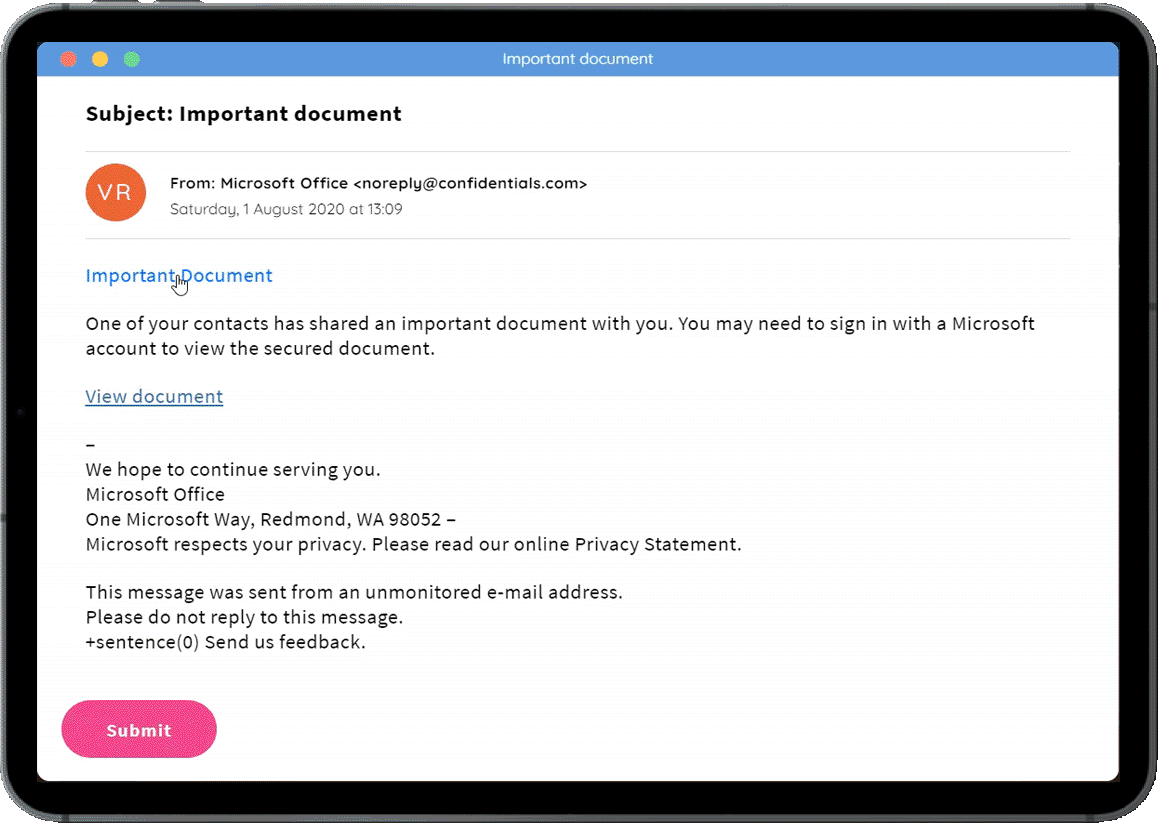
Cyber security is the number one threat to businesses and criminals are nothing if not innovators. In the first half of 2020, for example, cyber attackers were sending 1.5 million malicious emails per day related to the COVID-19 pandemic. Investing in firewalls and encryption software is only part of the solution. It must be paired with staff training to have even a remote chance of being effective. Human error still causes most cyber breaches, and no amount of expensive software or outsourced IT security specialists can be a substitute for effective ongoing training.
Cyber security training is most effective when delivered in short, micro-learning modules and users retain the information best when it is relevant to their individual circumstances and level of expertise. Just as we may not need to teach IT professionals about password protection, HR staff don’t need to know the technical specifications of the business’ firewall.
VinciWorks has created a full suite of cyber security courses. We recommend integrating the training into a year-long cyber security training plan. The advanced plan is most relevant for those who have not taken in-depth cyber security training before and lack basic knowledge and understanding of cyber security risks and how to mitigate them. The standard plan is relevant for all other staff.
We suggest two cyber awareness training plans. These training plans are examples; our team can work with you to help create the training plan that works best for your organisation.













